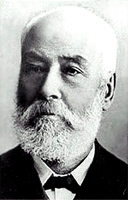On the eve of 24 May, the day of the Slavonic alphabet, culture and education, we turn to traditional songs dedicated to books and to teachers. Songs that attest to Bulgarians’ love of knowledge and learning, of the respect they have for the educated.
The day of the brothers Sts. Cyril and Methodius is marked by the church on 11 May. It was first celebrated as the day of education in Plovdiv in 1851, when celebrations and a school procession were organized at the diocesan school there, named after the two brothers. There is no other nation to honour the creation of its alphabet and its literature with a special day.
 There are a great many proverbs and riddles about books and literature. One of the most widespread among them (varying slightly depending on the dialect) is: “A white fallow field, black seeds. The hand sows it, the eye reaps it. What is it? – A book.” Essentially, books are the symbol of knowledge, a constant companion of the learned.
There are a great many proverbs and riddles about books and literature. One of the most widespread among them (varying slightly depending on the dialect) is: “A white fallow field, black seeds. The hand sows it, the eye reaps it. What is it? – A book.” Essentially, books are the symbol of knowledge, a constant companion of the learned.
Once teachers were called daskal (schoolmaster), gramatik (knowledgeable), gramoten (literate), knizhoven (learned). A great many teachers from the time of the National Revival have come down to us called by those names – Daskal Manol, Yoan Gramatik, Matey Gramatik… The first schools in Bulgaria were church or monastery schools and the teachers were not necessarily specially trained. They were usually priests, or people connected with the church, artisans, young men who could read and write. The character in the song called “Make a teacher out of him” is “young voevod Milen” who could read and write really well. He knew how to read “Greek books, Turkish books, but most of all white Bulgarian books”. That is why the village notables decided to make a teacher out of him – to teach children to read and write. “White” was popularly used as a synonym of purity and loftiness. That is why in traditional songs, faith is “white Bulgarian”, a beautiful girl is “white”…
 “Naiden Gramarik (or alternately Handsome Naiden) was a name famous, for he could read and write – better than the bishop, the bishop of Plovdiv.” Further the lyrics of the song about him go that the cleric wrote a book (letter) and the book “wrote, the book talked” to Naiden and told him to go see him. When the two met, the bishop told the young gramatik to become a daskal. This song, sung in innumerable different versions is actually about a historical figure – Naiden Gerov – or at least that is what historians say. A Bulgarian writer, linguist, folklorist, founder of one of the first class schools, Naiden Gerov was the man who initiated the first celebration of the day of Sts. Cyril and Methodius.
“Naiden Gramarik (or alternately Handsome Naiden) was a name famous, for he could read and write – better than the bishop, the bishop of Plovdiv.” Further the lyrics of the song about him go that the cleric wrote a book (letter) and the book “wrote, the book talked” to Naiden and told him to go see him. When the two met, the bishop told the young gramatik to become a daskal. This song, sung in innumerable different versions is actually about a historical figure – Naiden Gerov – or at least that is what historians say. A Bulgarian writer, linguist, folklorist, founder of one of the first class schools, Naiden Gerov was the man who initiated the first celebration of the day of Sts. Cyril and Methodius.
Frequently, really young boys were appointed schoolmasters. Like the character in a song by Georgi Germanov “A daskal boy came to teach the children”. “He taught and taught them, then the lasses taught him.” So, the boy fell in love with Zlatka, stopped going to the school and would always be at her house bearing gifts – lemons and oranges.

English version: Milena Daynova
Photos: libraryThe Borisova Garden in the heart of Sofia will once again become the stage for the Surva mummers' festival traditionally held in the town of Pernik. For the third consecutive year, Sofia residents and guests of the capital will be able to enjoy the..
Moving to Bessarabia more than two centuries ago, some Bulgarians brought with them part of their rich rituals. In their new homeland, some customs became modified under the influence of local traditions, others disappeared, and still others have been..
The first day of January is a day filled with emotions and joyful anticipation of a prosperous year in which all family members will be healthy and will make all their dreams come true. In the traditional Bulgarian calendar, 1 January is known as..

+359 2 9336 661
